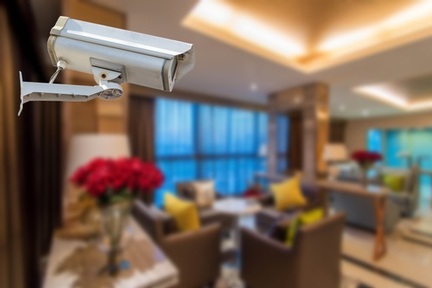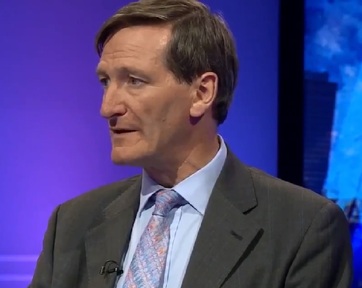MP vows to get new law making CCTV in care homes compulsory
Conservative MP Dominic Grieve is pushing for a new law making cameras compulsory in care homes.

The MP for Beaconsfield wants a CCTV law to be one of the first issues debated by MPs when Parliament returns this September.
He will apply for a debate in Parliament and intends to argue his case for a law that would make it a requirement for all care homes to install recording equipment.
Law will 'protect carers; it's not just a spy device’
“If a resident suffers an injury and you can show on CCTV how it happened, residents and relatives are going to be reassured”, he told the Daily Express.
Currently, there is no requirement for care providers to use monitoring in communal areas.
Mr Grieve, a former attorney general, said: "I think this is achievable and could become law. Seeing potential problems that exist in care environments, the arguments in favour are very strong.
"We have large numbers of vulnerable people in care homes and we want to provide them with proper standards of care. Incidents of them being abused are scandalous.”
 But he warned: "We are not going achieve this overnight, but it is something we should continue pressing for.
But he warned: "We are not going achieve this overnight, but it is something we should continue pressing for.
"There is clearly growing anxiety about the risk of abuse, sometimes from other residents and sometimes staff, so all that seems to me to make it very valuable. It's there to protect carers, it's not just as a spy device.”
The use of CCTV in care homes has long been a topic for debate with some families of abuse victims calling for widespread use, claiming it is the only way to catch abuse or neglect.
Mr Grieve made his statements after hearing from campaign group Care Campaign for the Vulnerable.
Jayne Connery who founded Care Campaign For The Vulnerable is calling for CCTV to be installed in every care home following the experiences of her mother who has dementia. Ms Connery has been a carer for her mother since 2016.
'There will always be areas which cameras do not see'
However, many have argued a CCTV law is not the solution to issues in care homes.
Gary FitzGerald, chief executive of Action on Elder Abuse has previously voiced concerns of “getting caught up in a debate about cameras when they are a symptom of the problem not the problem”.
He added: “I really think it is a red herring and it is deflecting us from the whole issue of quality of care. Cameras are not the solution. We have to force the Government to invest in social care.”
Caroline Abrahams, charity director at Age UK, recently said: “With all the media stories about abuse and neglect in care homes it can be tempting to see installing security cameras as ‘the answer’, but Age UK very much doubts this is the case.
“For a start, there will always be areas which cameras do not see and we would not want there to be a false sense of reassurance about the care on offer to residents. More profoundly, care homes are that just that – people’s homes - and those living in them have rights to privacy and dignity just like everyone else.
"Any use of cameras must therefore balance concerns about older people’s welfare with their right to dignity. Certainly, as a matter of principle we think that cameras should only be used with the informed consent of care home residents or their representatives".
She added: "Above all, we need to raise the quality of care in care homes across the board and ensure that all older people, their families and staff are involved in how the care home is run and are able to raise any concerns.”
Latest News
 29-Jul-24
Dementia Bus gives carehome.co.uk staff insight into life with dementia
29-Jul-24
Dementia Bus gives carehome.co.uk staff insight into life with dementia
 01-Mar-24
Find out the top care homes in 2024
01-Mar-24
Find out the top care homes in 2024
 21-Mar-23
UK's top care homes in 2023 revealed
21-Mar-23
UK's top care homes in 2023 revealed
 03-Jan-23
carehome.co.uk launches free care helpline
03-Jan-23
carehome.co.uk launches free care helpline
 13-Dec-22
5 mins with Emily Whitehurst, chief operating officer for Constantia Healthcare
13-Dec-22
5 mins with Emily Whitehurst, chief operating officer for Constantia Healthcare